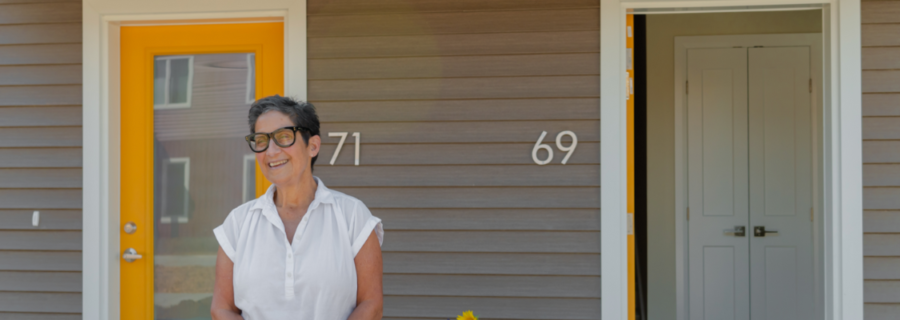Executive Director of Adsum for Women & Children, Sheri Lecker, knows better than most how recent cost of living increases, including high interest rates, inflation, and an out-of-control housing and rental market are affecting people in the province.
At the helm of the Halifax non-profit — which helps support women, families, trans and gender diverse persons, and, more recently, men who are experiencing homelessness or are at risk — for the last 21 of the organization’s 40 years in operation, Lecker is increasingly alarmed at the lack of progress she’s seen over the last two decades.
“Things have not gotten better, and especially in the last four or five years. We’ve seen a devastating deterioration in people’s income, but also in the current housing and homeless crisis, which are really humanitarian disasters that many major cities, but also more rural parts of the province and country are experiencing,” Lecker says.
Another alarming trend Lecker says they’re now seeing is a segment of the population they’ve typically not heard from, and not mandated to assist.
“Our work is primarily with people who have the fewest resources. But increasingly, we’re hearing from people who have significant resources but are also facing housing insecurity,” she says. “ They’re losing their housing, and they don’t know what to do. It’s extraordinary when people who are earning $40-60K a year can not find housing.”
Lecker, a Sydney, Cape Breton native with a background in journalism, humanitarian assistance, and public health, says she returned to Halifax from Angola back in 2002, along with her young family and British husband, to be closer to her aging parents. A career spent working for groups such as Médecins Sans Frontiers and Save the Children UK put her in good stead for the position she’s now held for over two decades.
“I saw Adsum as a place where I could do good work and use that good work to try and influence and advocate for change in systems,” Lecker says.
And although seemingly upbeat, Lecker also gives off a sense of weariness for what she and the rest of the Adsum staff see on a daily basic.
“It’s not that I’m tired, just overwhelmed at all the major structural changes that are needed,” she says. “And a lot of what we call homelessness or people not being housed now are fairly recent situations related to the market and people’s incomes, which are insufficient.”
And though dealing with the realities of life on the frontlines can be challenging, Lecker is excited to talk about the many programs and housing projects which Adsum is involved with. Beyond the hundreds of people in Adsum-run facilities and staying in hotels throughout HRM, there are hundreds more who are supported through outreach (Diversion program) to avoid eviction or with help getting housed.
Lecker tells me about a recent phase 1 pocket community development (The Sunflower) which Adsum opened in 2022 in the Lakeside area, which currently houses approximately 50 people.
“It’s a really beautiful sustainably-built development with a combination of one, two, and three-bedroom units. A number are fully accessible, and we also have a community centre, offices, office space, and a large community space with a fully-equipped accessible kitchen,” Lecker says.
Phase 2 will include a further 15 to 18 units. The development, Lecker says, was a combination of Adsum resources, as well as federal and provincial funding. Rents, she says, are low — in the vicinity of $300/mth., which, thanks to a sustainable, green building model, will result in lower annual operating costs and the ability to keep rents down.
And when asked about her thoughts on the currently trending idea that the market will eventually rectify the current housing crisis, she quite handily cuts through the rhetoric.
“Affordable housing does not trickle down and there’s definitely not enough that’s affordable. At the end of the day, it’s going to be government, nonprofits, and coops that are going to develop and run affordable housing — not the big operators.”
< Back to Articles | Topics: Member Profile

